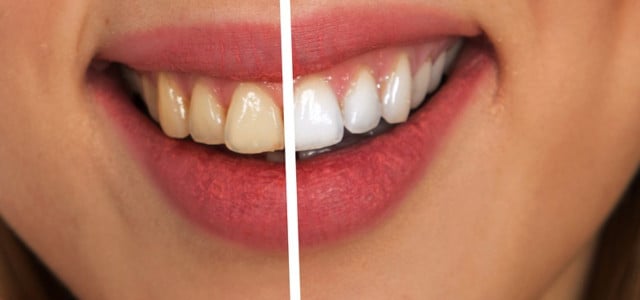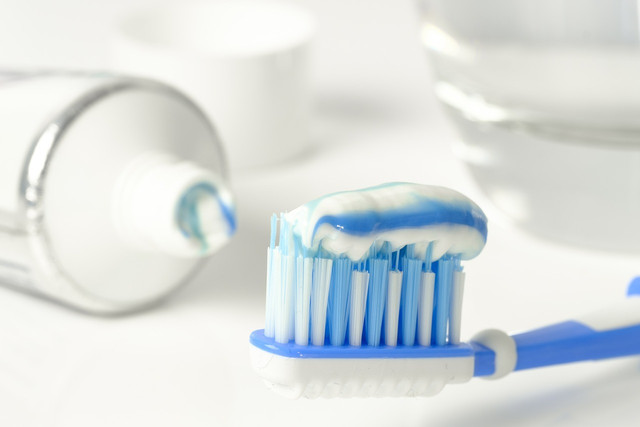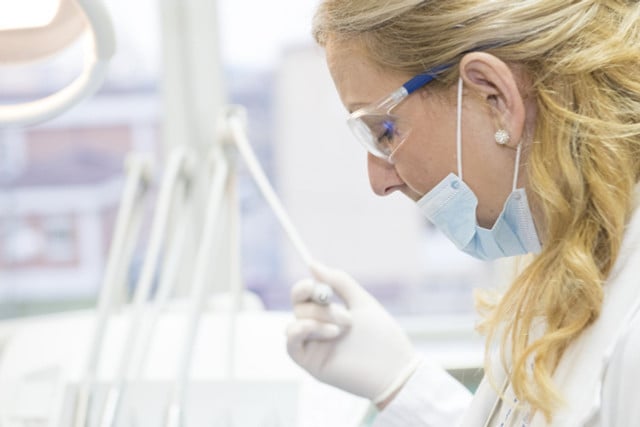
Yellow teeth are usually not a concern and are primarily an aesthetic problem. Here you can find out which factors promote discoloration and what you can do about yellow teeth.
In western society, yellow teeth are considered a sign of poor oral hygiene. Many sufferers therefore perceive them as a cosmetic problem. In fact, tooth discoloration can be caused by a number of different factors.
You can find many products at drugstores designed to whiten your teeth. However, whether these work also depends on the underlying causes of tooth discoloration. Some products also entail various risks.
Yellow Teeth: Common Causes
According to NetDoktor, tooth discoloration is divided into intrinsic and extrinsic discoloration. If yellow teeth are intrinsic, the interior of the dentin or tooth enamel is discolored. This discoloration occurs as a result of natural aging processes or as a result of metabolic diseases and tumors during tooth development. Root filling materials can also cause teeth to turn yellow on the inside.
Extrinsic discolorations are located directly on the tooth surface or on the tooth cuticle. They are caused by color particles that accumulate on the teeth and come from drinks or food, for example.
NetDoktor names the following as the most common causes of yellow teeth:
-
Coffee, tea, red wine and similarly colored food and beverages: These leave intensive color particles on the teeth, which can penetrate to the tooth enamel over time.
-
Tobacco: Smoking poses a variety of health risks. Tobacco consumption also affects the teeth.
-
Age: With age, it is quite normal for teeth to become discolored. The reason for this is that the white tooth enamel becomes thinner over the course of life and the yellowish dentin underneath becomes more prominent.
-
Poor oral hygiene: Irregular or insufficient tooth brushing can also be noticeable in yellow teeth, because then you do not remove the plaque sufficiently.
-
Medications: Some antibiotics also cause tooth discoloration as a side effect. These can even remain permanent, especially in pregnant women and children.
-
Mouthwash: Some mouthwashes contain the active ingredient chlorhexidine. It has an antibacterial effect, but also causes dark tooth discolouration.
Last but not least, yellow teeth can also be hereditary. Some people are born with teeth that are more yellow than others.
Whitening Toothpaste: Effective for Yellow Teeth?

(Photo: CC0 / Pixabay / Bru-nO)
One of the most well-known products for yellow teeth that you can find in drugstores are so-called whitening toothpastes. These contain cleaning bodies. These are small particles that are intended to mechanically reinforce the cleaning – these can consist of microplastics. In addition, some toothpastes contain chemical additives that are supposed to whiten the teeth. For example, silica and aluminum oxide cleaning bodies combine mechanical and chemical aspects.
If whitening toothpastes work at all, then only with extrinsic discolorations. In the case of hereditary yellow teeth, for example, they would be ineffective. In the case of discoloration caused by colored plaque, the toothpastes were hardly noticeably better than conventional toothpastes. In addition, whitening toothpastes cannot be used without hesitation. After all, there are still not enough studies that could possibly rule out long-term tooth damage from whitening toothpastes.
Stiftung Warentest also subjected whitening toothpastes to a test. It turned out that the toothpastes actually remove extrinsic discolouration efficiently. However, some normal toothpastes that cost significantly less money would also be able to do this. According to Stiftung Warentest, users should also note that whitening toothpaste has a relatively high level of abrasion. This means that the tooth loses substance as a result. This is usually harmless for healthy teeth. With exposed tooth necks, however, it can become a problem.
Other products against yellow teeth

(Photo: CC0 / Pixabay / DarkoStojanovic)
In addition to whitening toothpastes, there are other methods and products that promise whiter teeth:
-
Toothpastes with activated charcoal are said to help against yellow teeth. However, in an article published in the British Dental Journal, researchers could not confirm this assumption. In addition, activated charcoal also causes a high level of abrasion and is therefore particularly unsuitable for sensitive teeth. You can find out more about this here: Activated charcoal for teeth: why it’s not a good idea.
-
Baking soda, baking soda, and hydrogen peroxide: You can also find videos and articles online advising you to use home remedies to combat yellow teeth. According to Stiftung Warentest, this is not a good idea, because the seemingly harmless home remedies can severely damage your teeth. You can get more information about this here: Teeth bleaching: The most well-known home remedies are good for that.
-
Bleaching: This process should only be carried out by professional dentists. According to NetDoktor, it has a lightening effect on intrinsic discolorations. Dentist Jörg Schneider explains to the Deutsche Apotheker-Zeitung that the bleaching effect lasts about six to 24 months. Sometimes undesirable side effects can occur. The teeth can temporarily become particularly sensitive during the bleaching. Gum irritation is also possible. At around 250 to 600 euros per treatment, professional bleaching is also expensive.
-
Professional tooth cleaning: You should have this done regularly to keep your teeth healthy. As a side benefit, it also removes plaque, potentially reducing the discoloration of your teeth, according to NetDoktor.
- Under names like Bleach Strips or Whitening Strips, manufacturers also offer products that you can use to bleach your teeth at home. Stiftung Warentest clearly advises against these articles. For example, dentists first have to examine your teeth and make sure that they are suitable for bleaching. According to NetDoktor, over-the-counter bleaching preparations can also cause inflammation and irritation in the mouth.
Preventing yellow teeth: That really helps
The following tips can help you to reduce tooth discolouration or to prevent yellow teeth from developing in the first place:
- Make sure you brush your teeth regularly and thoroughly. This is how you remove plaque and leftover food from your mouth every day.
- Avoid coffee, black tea, red wine and tobacco or reduce your consumption of these colour-intensive stimulants.
- Have your teeth professionally cleaned regularly.
- If your yellow teeth represent a strong uncertainty factor for you, you can also get advice from dentists on possible bleaching and weigh up all the advantages and disadvantages together.
Read more on Techzle.com:
- Can you build up tooth enamel? Tips for healthy teeth
- Brush your teeth properly: 7 tips for it
- Fluoride: Toxic or important for the teeth?